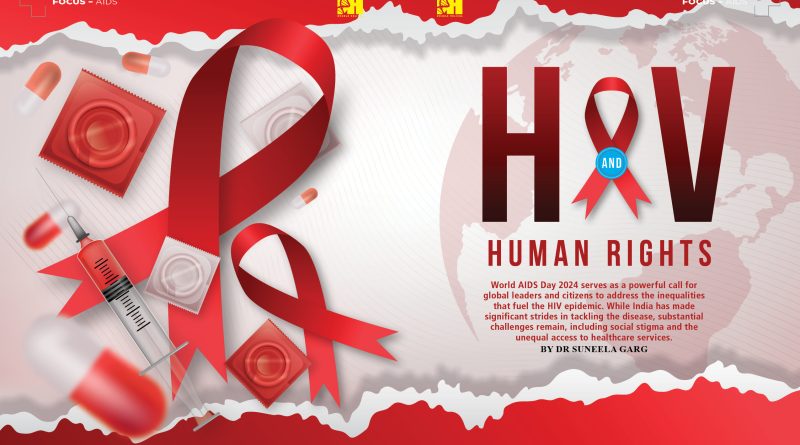HIV and Human Rights
World AIDS Day 2024 serves as a powerful call for global leaders and citizens to address the inequalities that fuel the HIV epidemic. While India has made significant strides in tackling the disease, substantial challenges remain, including social stigma and the unequal access to healthcare services.
By Dr Suneela Garg
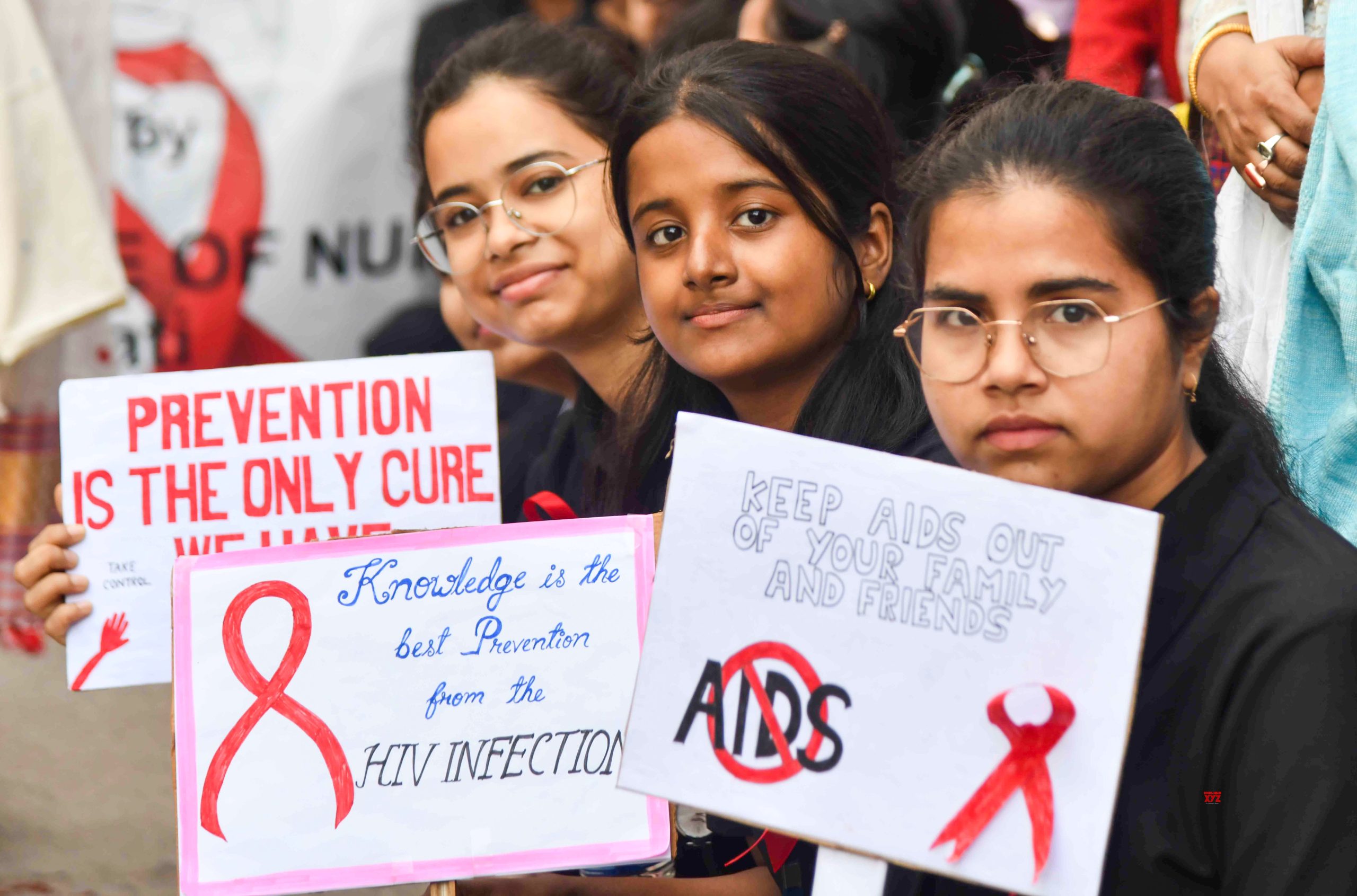 The theme of this year’s World AIDS Day, “Take the rights path: My health, my right!” highlights the vital role of human rights in the fight against HIV/AIDS. This global campaign, led by the World Health Organization (WHO), calls for world leaders and citizens to prioritise addressing the inequalities that continue to hinder progress in eliminating AIDS as a public health threat by 2030. For countries like India, the challenge remains significant, but the path forward is clear: ensuring access to health services for all, irrespective of gender, HIV status, or background, is central to ending the HIV epidemic.
The theme of this year’s World AIDS Day, “Take the rights path: My health, my right!” highlights the vital role of human rights in the fight against HIV/AIDS. This global campaign, led by the World Health Organization (WHO), calls for world leaders and citizens to prioritise addressing the inequalities that continue to hinder progress in eliminating AIDS as a public health threat by 2030. For countries like India, the challenge remains significant, but the path forward is clear: ensuring access to health services for all, irrespective of gender, HIV status, or background, is central to ending the HIV epidemic.
India’s efforts to combat HIV/AIDS have shown notable progress, especially in terms of treatment and care. The country’s Mission for HIV aims to reduce new infections by 80 per cent by 2024, while also striving for 95 per cent of people living with HIV to know their status, and 95 per cent of those diagnosed to be receiving treatment. Despite these ambitious goals, the challenges persist. As of 2023-24, India reported 16.89 lakh HIV cases, a 7.3 per cent increase from the previous year, and states like Haryana, Punjab, and Himachal Pradesh have seen significant rises in HIV cases. While some regions have seen a decline, such as Chandigarh, the national burden remains high.
One of the most remarkable achievements has been India’s success in reducing AIDS-related deaths by nearly 80 per cent since 2010. This is largely due to the ‘test and treat’ programme of the National AIDS Control Organisation (NACO), which provides free lifelong treatment to individuals. However, the challenges remain in addressing systemic inequalities, particularly in marginalised communities, which hinder the widespread success of these initiatives.
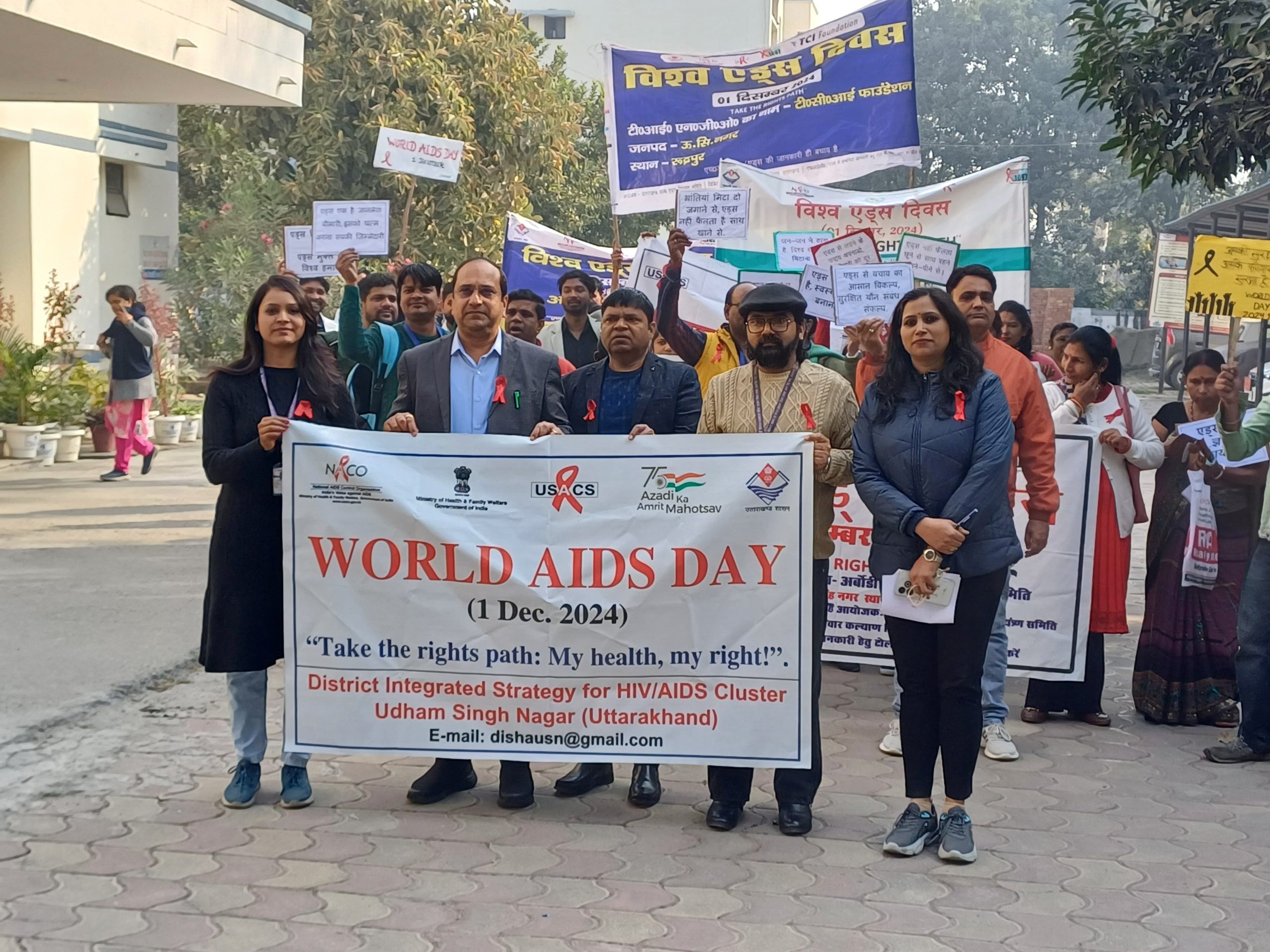 The Need for Equal Access to Healthcare
The Need for Equal Access to Healthcare
The fight against HIV/AIDS is intrinsically tied to the right to health. Everyone, regardless of HIV status, should have access to health services, including HIV prevention, treatment, and care. This fundamental right is essential for ensuring that the fight against HIV is inclusive and equitable. In India, where social stigma continues to be a significant barrier, especially in conservative regions, access to healthcare is still a challenge for many at-risk groups.
People living with HIV, as well as those at risk, often face double discrimination: the disease itself and the social stigma attached to it. To overcome these challenges, it is crucial to reduce stigma and discrimination through education and awareness campaigns that target both the public and healthcare providers.
Targeting Vulnerable Groups
Key populations that are at higher risk for HIV, including sex workers, transgender people, people who inject drugs, migrants, and long-distance drivers, require targeted interventions. Community-led organisations are instrumental in reaching these vulnerable groups. These organizations, with sufficient resources and support, can implement effective outreach programs that increase awareness and provide necessary services.
India’s success in reducing new HIV cases by 44 per cent over the last decade demonstrates that such efforts can have a significant impact, but there is still much work to be done, particularly in underperforming states. In some regions, the increase in HIV cases highlights the need for intensified efforts to address both the medical and social challenges.
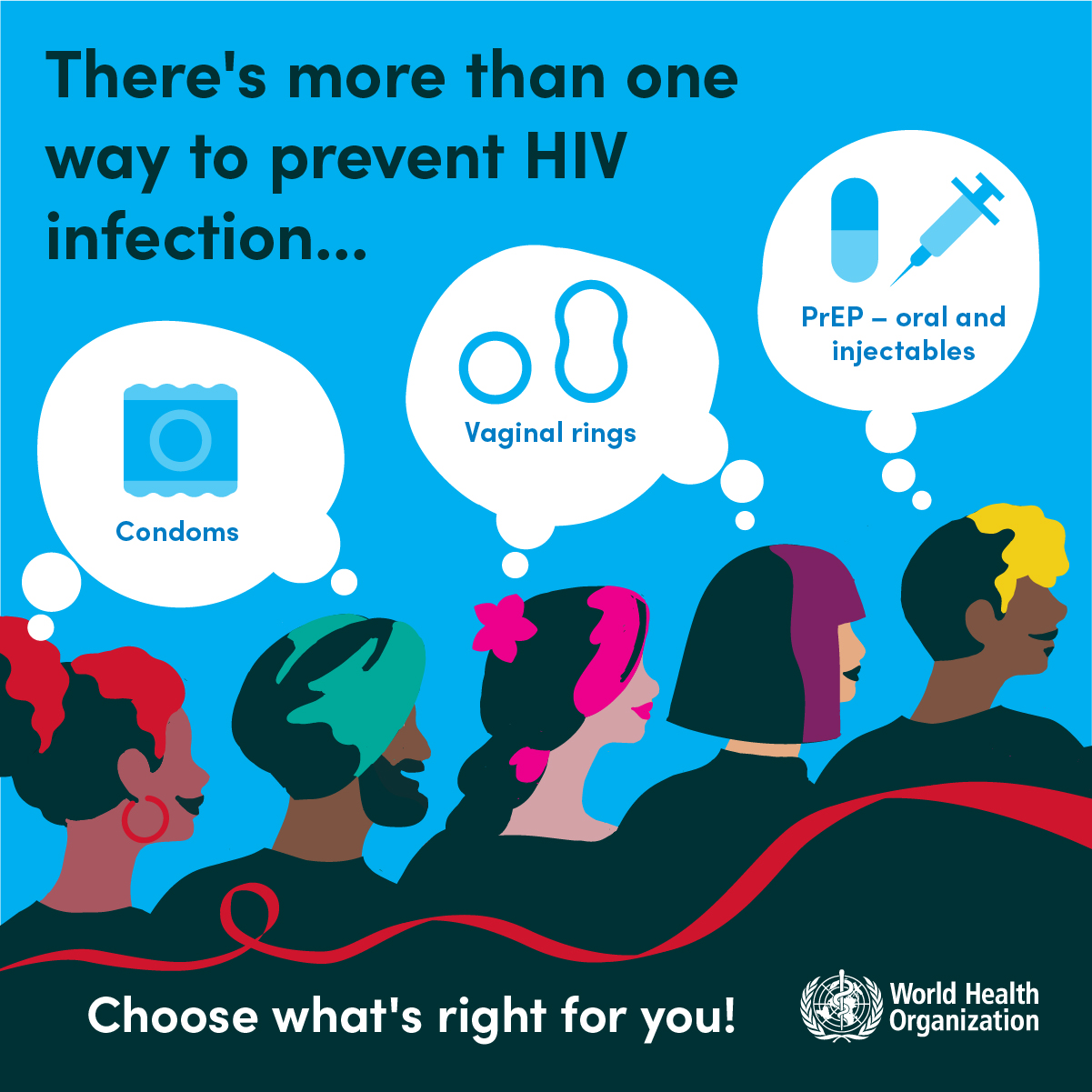 The Role of Human Rights in Ending AIDS
The Role of Human Rights in Ending AIDS
Human rights are at the core of this battle. As the theme for this year’s World AIDS Day reminds us, health is not just a privilege—it is a right.
Protecting the rights of people living with HIV is essential to breaking the barriers that prevent access to care and treatment. By ensuring that people from all backgrounds, including those who are marginalized, can access essential health services without fear of discrimination, India can make substantial progress in reducing the HIV burden.
As India continues its fight to end AIDS as a public health threat by 2030, it is crucial that efforts focus not only on medical advancements but also on addressing the root causes of inequality and stigma. Only by embracing the fundamental right to health for all, regardless of HIV status, can India move closer to achieving its goals and ensuring that the future is free of AIDS.
The Path to Ending AIDS
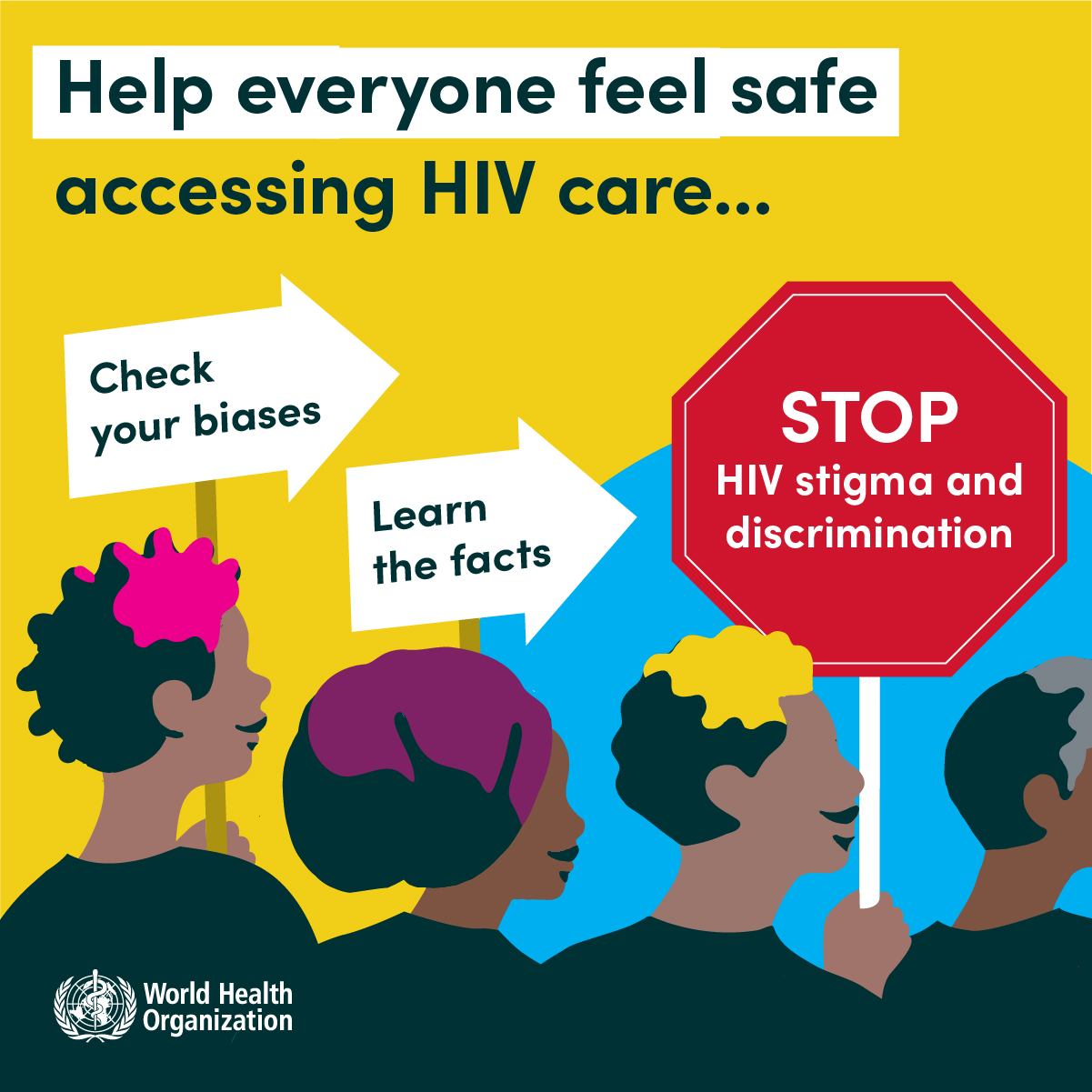 World AIDS Day serves as a reminder of the progress that has been made, but also of the challenges that remain. For India, the fight against HIV is far from over, but with continued efforts to remove stigma, increase access to care, and protect the human rights of all, the country is on the path to achieving the global goal of ending AIDS as a public health threat by 2030.
World AIDS Day serves as a reminder of the progress that has been made, but also of the challenges that remain. For India, the fight against HIV is far from over, but with continued efforts to remove stigma, increase access to care, and protect the human rights of all, the country is on the path to achieving the global goal of ending AIDS as a public health threat by 2030.
(The author is Chair, Programme Advisory Committee, National Institute of Health & Family Welfare, Ex-Sub Dean MAMC, Professor of Excellence, and Member, Lancet Commission.)

